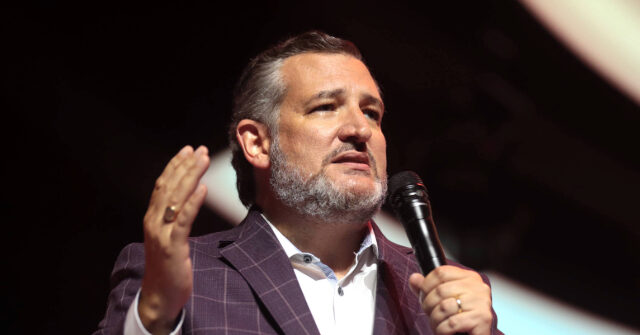During a recent appearance on Fox News Channel’s “Hannity,” Senator Ted Cruz (R-TX) claimed that Democrats are entering a state of panic due to perceived shortcomings in Vice President Kamala Harris’s presidential campaign. Cruz pointed out that the Democrats seem to lack substantive policy proposals and are instead relying on a generalized animosity towards former President Donald Trump as their electoral strategy. He argued that this approach is fundamentally flawed and unlikely to resonate with voters. Cruz suggested that there exists a divide within the White House, especially among Biden’s loyalists, as they may feel threatened by Kamala Harris’s declining support and potential candidacy.
Cruz’s assertion hinges on the observation that following the Democratic convention, there was a brief spike in enthusiasm for Harris, which he refers to as a “sugar high.” However, he warned that this temporary surge would not hold and underscored that the prevailing political climate favors Trump and the Republican Party. The Senator’s comments reflect a broader concern among Republicans about the Democrats’ ability to unite around a strong candidate and a coherent platform, particularly given the current administration’s challenges.
Another point raised by Cruz was a particular interview where Harris struggled to articulate her accomplishments over the past three and a half years. Referencing her interaction with Bret Baier, Cruz highlighted what he described as a chaotic interview, considering that Harris could only express vehement opposition toward Trump instead of offering any tangible solutions or discussing her record. This inability to pivot from past grievances back to the present or to propose a future vision for America was seen as emblematic of her campaign’s challenges.
Cruz criticized the Democratic narrative that revolves around a sole focus on opposition to Trump, deeming this strategy ineffective in addressing the pressing issues faced by voters today. He pointed out that significant problems persist, including a crisis at the border, economic difficulties, and foreign policy failures. According to Cruz, simply expressing hatred for Trump won’t translate to electoral success when voters are concerned about real-world issues that have come to define this administration’s tenure.
In his analysis, Cruz conveyed that the current political landscape heavily favors Republican narratives due to the Democratic Party’s failure to engage in meaningful discourse covering their policies and achievements. The framing of the election, as perceived by Cruz, is being constructed around an emotional appeal to negative sentiments rather than positive policy frameworks or governance. This approach risks alienating potential voters who are looking for effective leadership rather than partisan complaints.
Overall, Cruz firmly positioned himself within the ongoing discourse about the upcoming election, emphasizing that the Democrats’ internal strife and focus on Trump hatred will ultimately be their downfall. He projected confidence that Republican candidates, particularly Donald Trump, could leverage these vulnerabilities effectively at the polls. As the political scene continues to evolve, the dynamics within the Democratic Party and the performance of its candidates will remain pivotal in shaping the upcoming electoral outcomes.

